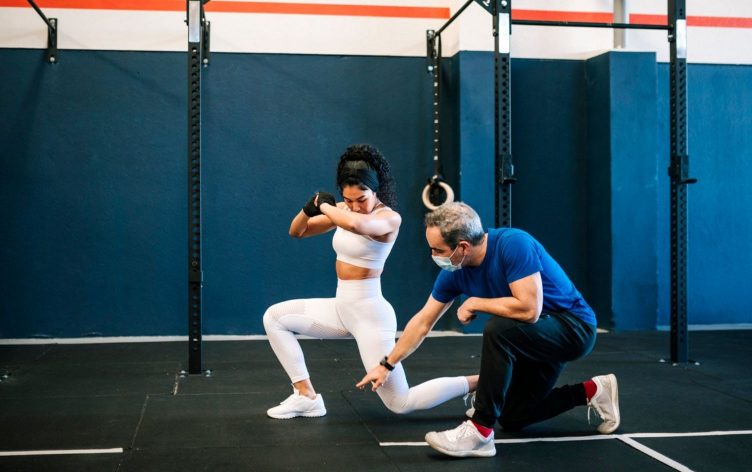
Study Shows Coaching (in Class or With a Trainer) Lessens Depression
A slew of studies have found exercise has a profound impact on mood and, in cases of mild to moderate depression, a cardiovascular workout might be as effective as prescription anti-depressants.
HOW EXERCISE BOOSTS MOOD
Exercise is believed to trigger changes in the brain, boosting levels of serotonin, the feel-good hormone, stimulating connections between neurons, lowering stress hormones, easing depression and improving mood. New research offers another explanation.
A 2019 study published in Medicine & Science in Sports & Exercise found exercise increased levels of endocannabinoids in the blood. These molecules interact with the same brain receptors as cannabis and have been shown to increase mood. The research showed 20 minutes of exercise, regardless of intensity, helped women with major depression feel less depressed and anxious — but there was one important difference.
HOW COACHING AMPLIFIES THAT
Lead author Jacob Meyer, PhD, an assistant professor of kinesiology at Iowa State University, compared two different sessions and discovered that when women were instructed to ride stationary bicycles at an intensity of their choosing — even when it was a moderate-to-high-intensity pace — their mood improved but their endocannabinoid levels remained unchanged. It was only when women were instructed to ride at a moderate intensity that their mood and endocannabinoid levels increased.
Meyer attributes the differences to coaching.
“If someone is exercising and needs to choose what they are going to do or how they are going to do it or for how long they are going to do it or any of the other aspects of the exercise itself, that could cause anxieties or concerns if [their] self-confidence or knowledge about the exercise is low,” he says. “Having the parameters of the exercise session prescribed might be helpful in alleviating or preventing some of those concerns.”
Making these decisions could be especially hard for someone who is depressed. A coach or personal trainer, Meyer adds, could help build the confidence needed to complete a workout, achieving a goal a coach set could increase feelings of accomplishment, and the interpersonal interaction might make a workout more enjoyable. Coaching might also lead exercisers to work out at a moderate intensity, which appears to be key for alleviating depression.
WHY INTENSITY MATTERS
Among a group of college students diagnosed with depression, symptoms decreased for those who engaged in six weeks of moderate-intensity exercise or high-intensity interval training; depression worsened among those who did not exercise at all, according to research published in Biological Psychology. A separate study found increasing exercise intensity by as little as 10% was associated with significant increases in antidepressant effects.
Nicholas Ratamess, PhD, a professor of exercise science at The College of New Jersey, found exercisers chose heavier weights and worked out at higher intensities when doing strength-training workouts with a personal trainer compared to solo workouts. The decision could have a significant impact on depressive symptoms.
“Intense workouts are more challenging and produce a more robust hormonal response especially if coupled with short rest intervals and large muscle mass exercises,” Ratamess says. “One group of hormones, beta endorphins, are shown to affect mood [and] exercise [and] is a potent stimulus for β-endorphin secretion but the response is dependent on the intensity and duration … aerobic exercise increases β-endorphins with a rise in intensity, which enhances mood during and after exercise.”
TRAINERS AND CLASSES ALIKE
If hiring a personal trainer isn’t in the budget, consider group exercise classes. Ratamess believes an instructor could push you to train harder and encourage you to push to get through the workout. The other exercisers in the class could provide motivation, too. Exercising with others you consider to be more fit increased workout times as much as 200%.
Working out with a coach is about more than just getting stronger or faster. Meyer believes there could be additional physiological changes from the interaction with a coach that could be involved in how people respond to exercise. But you don’t need to train like an Olympian to experience the benefits of exercise on mood.
“While exercise of higher intensities is necessary for improving fitness and strength … a moderate-intensity workout of a relatively short duration, something similar to going for a brisk walk around the block or even around your office building, could have meaningful effects on how [you] feel,” he says.





